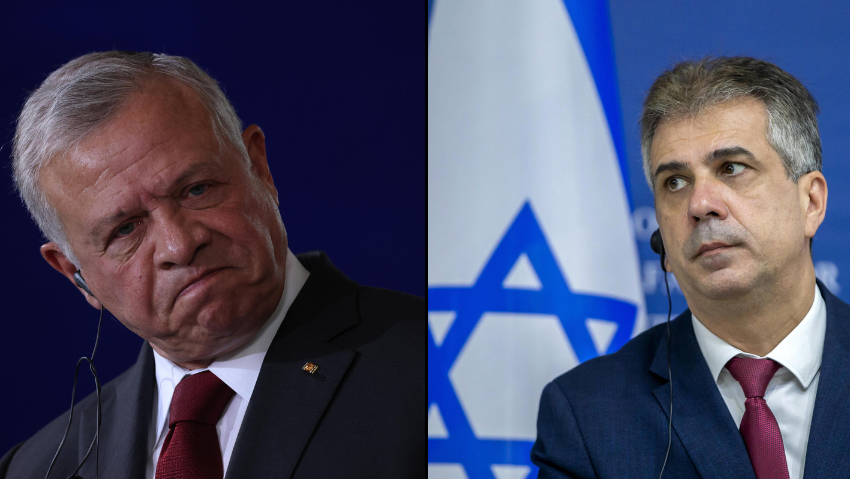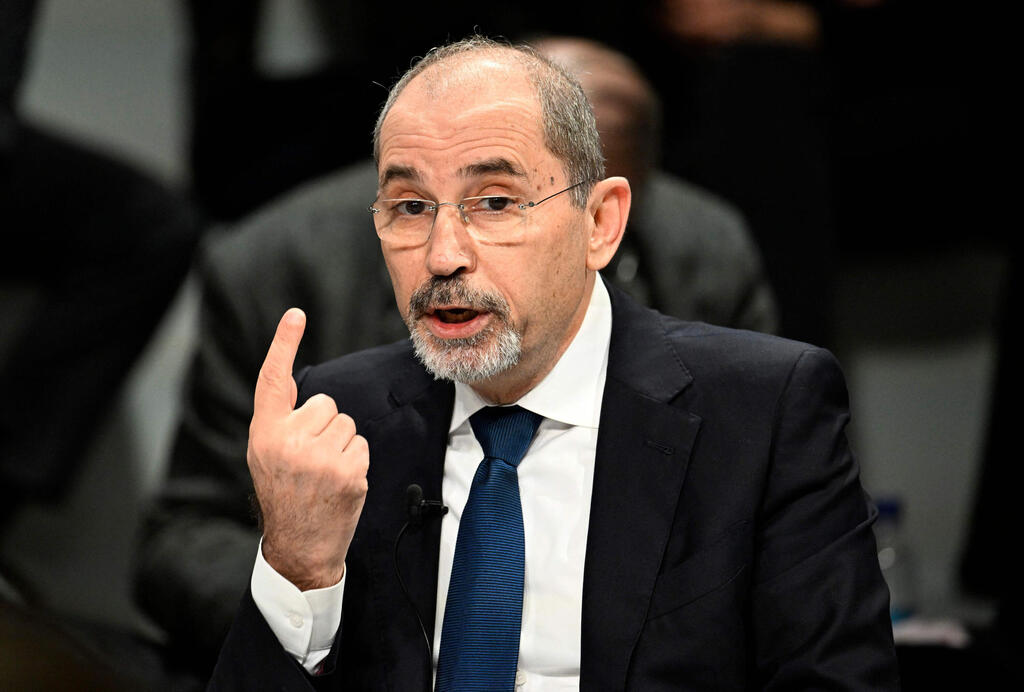Getting your Trinity Audio player ready...
Following Jordan's involvement in the western coalition's efforts to intercept all missiles and drones fired from Iran toward Israel, it appears Israel has decided to reciprocate; Energy Minister Eli Cohen is widely expected to extend the Jordanian-Israeliwater agreement for an additional year.
Reports indicate the Jordanian Air Force took part in intercepting Iranian UAVs, on top of allowing U.S. fighter jets to fly in its airspace in order to accommodate the same goal.
Extending the agreement has been a contentious issue for quite some time, especially as Jordan's Foreign Minister Ayman al-Safadi has repeatedly made anti-Israeli comments and co-sponsored South Africa's legal action against Israel in the International Court of Justice.
Originally, Jordan asked for a five-year extension of the agreement. Following Israel's hesitation, the Hashemite Kingdom softened its request, asking for a one-year extension.
Due to the country's severe water crisis, Jordan has quite a bit invested in this agreement. It is a land-locked country with few water sources besides the Jordan River, an issue that also compromises the nation's overall economic output.
Following years of drought brought about by unstable weather conditions exacerbated by climate change, ever-growing population numbers and a huge influx of Syrian refugees escaping civil war, the economic conditions in Jordan have getting progressively worse, and the discrepancy between the supply and demand of water now stands at about half-a-billion cubic meters.
The Jordan-Israel peace accord stipulates that Israel transfer 50 million cubic feet of water annually and, back in the summer of 2021, then-Prime Minister Naftali Bennett decided to double the amount to 100 million. That agreement was for three years, and ends next month. As it seems, a one-year extension will be granted following Jordan's help with the Iranian threat.




